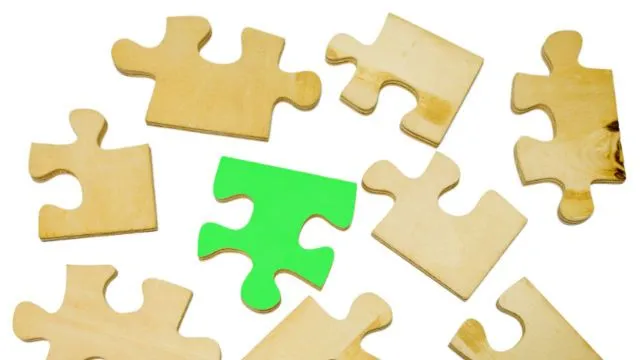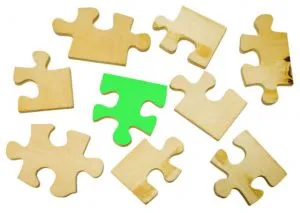
- Share on Facebook512
- Share on Pinterest
- Share on Twitter
Children are often introduced to their first jigsaw puzzles at an early age. The first of these consist of a few large pieces, and slowly evolve with the child to include more advanced pictures and shapes with smaller and more complex piece-sizes.
For centuries, jigsaw puzzles were a means of entertainment for children and adults alike. However, thanks to the donning of the digital age with its many smart gadgets, most children and very few adults today enjoy the experience of opening up a brand new puzzle box, complete with its freshly-cut cardboard scent.
All too often, children choose to forego the jigsaw puzzle aisle at the toy store in favor of the high-tech video game section, while adults opt for the world of the tablet, phone or laptop department.
However, bypassing the treasured pastime of puzzle building may be aiding in premature brain aging in adults and robbing children of the development of several important skills.
Research has shown that exposing children to toys such as blocks, jigsaw puzzles and other shape games helps develop their spatial skills. These key skills play an important role in the development of their spatial awareness and come into play primarily when tackling subjects in the STEM (science, technology, engineering and math) field. Similarly for adults, keeping these spatial skills sharp help wards off early-onset dementia.
As a full-body workout is optimal for all over muscle-growth, puzzle building can be considered a full-brain workout. The brain is comprised of two sides, the left and right. The right side is responsible for emotions, creativity and intuitive thought, while the left side is the logical, orderly and systematic component.
When you build puzzles, both sides are forced to communicate and work together, thus increasing cognitive function. You also give your occipital lobe a workout, which is the part of the brain that matches colors and shapes. Exercising the entire brain in this manner helps ward off future cognitive decline.
Breaking out a brand new puzzle also improves short-term memory. If you’ve ever walked into a room and immediately drew a blank as to your purpose, then you are familiar with the frustration that poor short-term memory can induce.
Experts believe that the ease of having Google at our fingertips every time we need to remember a book title or song lyric is responsible for rising rates of short-term memory loss. When puzzle building, you select a piece and are scanning through others with a set shape or color in mind. Exercising the part of the brain responsible for retaining this information will help maintain and improve the ever-important short-term memory.
Visual perception and coordination are also improved through puzzle building, for adults and children who are encouraged to configure these brightly colored cardboard pieces often experience enhanced creativity, problem solving and motor skills. Puzzle building can also be quite therapeutic.
As the puzzle comes to completion and more pieces are matched, the brain releases the feel-good chemical known as dopamine. Dopamine also plays a key role in both memory improvement and learning ability. And unless you are building a puzzle against the clock, the relaxing pastime often lowers blood pressure and reduces anxiety.
Children and adults should feel free to select puzzles that display designs they are drawn to. If you are looking to introduce older individuals to puzzles as a means to aid in their  cognitive function, there are a few things to keep in mind.
cognitive function, there are a few things to keep in mind.
- Don’t select puzzles that are too childlike in nature.
- Select appropriate piece size, as older individuals suffering from arthritis may struggle with small pieces.
- Don’t choose overly large puzzles that may take too long to finish, or designs that are too complex.
- Select puzzle designs that trigger happy memories, or create a puzzle with the photos of loved ones.
-The Alternative Daily
Sources:
https://www.marblesthebrainstore.com/blog/2012/11/12/4616
http://social-psychiatry.com/jigsaw-puzzles-good-brain
http://www.intentionalcaregiver.com/jigsaw-puzzles-benefit-the-brain
http://www.sciencedirect.com/science/article/pii/S221194931400009X
http://www.selfgrowth.com/articles/The_Healing_Power_of_Jigsaw_Puzzles.html
- Share on Facebook512
- Share on Pinterest
- Share on Twitter

